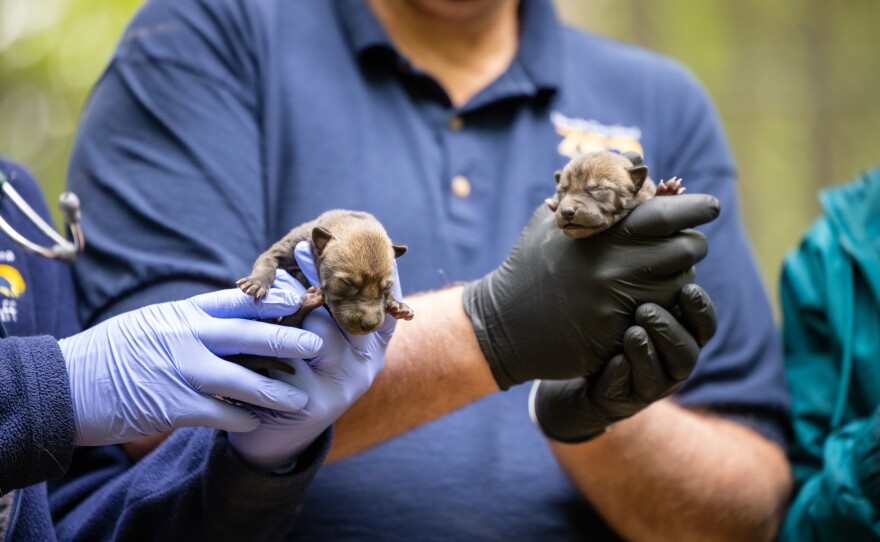A trio of red wolf pups were born last month at the North Carolina Zoo in Asheboro.
The zoo announced the April 20 births of the three brothers Monday on Facebook. The pups are the latest addition for mom, Ayita, and Denali, the dad. There are also two sisters, Alli and Roan, who were born at the zoo last year.
Red wolves live in family groups often with mother and father and several years of offspring, the zoo stated.
The pups will remain behind the scenes as a part of the zoo's red wolf breeding program.
In April, a litter of wild red wolf pups were born in North Carolina for the first time since 2018.
The six pups, four females and two males, were born to a pair of wolves in the Alligator River National Wildlife Refuge in the eastern part of the state, according to the Center for Biological Diversity.
The births come as the U.S. Fish & Wildlife Service has renewed recovery efforts of this near-extinct species as part of its Red Wolf Recovery Program. The agency had largely abandoned recovery efforts of the world's rarest canine predator since 2015.
In February, agency officials announced they were committing significant resources to reinvigorate the program.
Red wolves are native to North Carolina and once inhabited the entire Southeastern United States. By the 1970s, red wolves were almost extinct because of overhunting and habitat loss, and were officially listed as endangered.
Only 20 known red wolves remain in the wild, surviving in five sparsely populated counties in eastern North Carolina.
In 2020 and 2021, seven adult red wolves were released into the wild population. In 2021 alone, seven red wolves were confirmed killed by vehicle strikes, gunshots, and unknown causes. Gunshots are the leading cause of death for wild red wolves, followed by vehicle strikes, according to the news release.
Twenty thousand acres of prime habitat across five Southeastern states have been identified as potential reintroduction sites for the species.
WUNC's Celeste Gracia contributed to this report.








